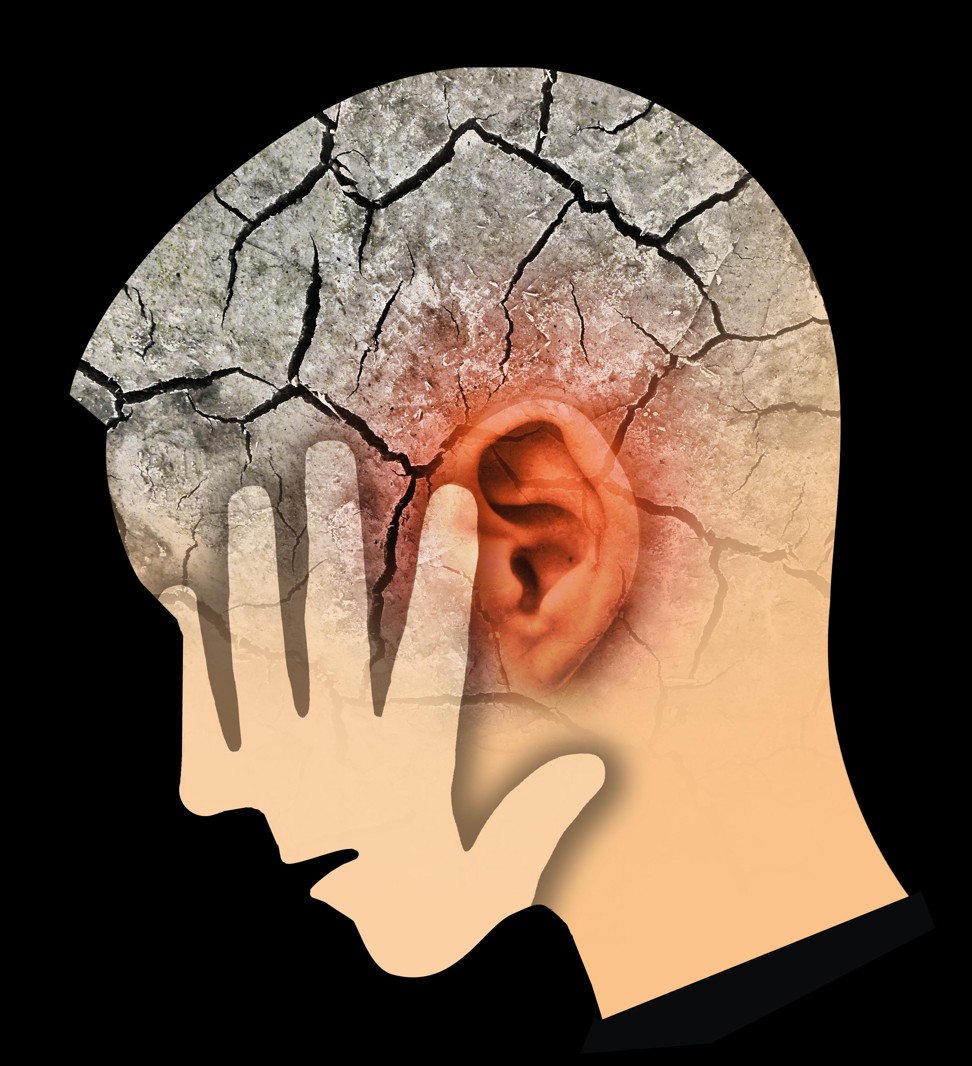
Tinnitus triggers: how exposure to loud music can cause permanent damage
- A person with tinnitus will hear a constant ringing, buzzing, hissing or whistling in their ears
- Causes include hearing loss, earwax build-up, stress, certain medications and exposure to loud noises
When Sarah went to her first rave in London in the mid 1990s, she was hooked. For the next 20 years, the city’s pumping club scene would become a huge part of her life. Even holidays were shaped around destinations such as Ibiza in Spain and the Thai island of Koh Phangan, so she could get her fix of loud music.
Now 42, Sarah, who wants to remain anonymous, works in Hong Kong as an English teacher and part-time yoga teacher. And while her social life is quieter these days – “my nights are spent in the company of herbal teas and Netflix” – she has a constant reminder of her rave days.
Sarah suffers from tinnitus – constant noise in the ears that is not caused by an external source. The noise varies from person to person, but, for many, it presents as a ringing sound – tinnitus is often referred to as ringing in the ears – while others experience buzzing or whistling sounds. For Sarah, it’s constant hissing.
Triggers for tinnitus vary but common causes include hearing loss, earwax build-up, stress, certain medications and, of course, exposure to loud noises, considered the leading cause of tinnitus in young people.

“Tinnitus itself is not a disease – it is a symptom of an underlying condition such as hearing loss, ear injury or ear infection,” says Dr Ambrose Ho Chung-wai, specialist in otorhinolaryngology at the Hong Kong Sanatorium & Hospital. “Noise exposure is one of the most common reasons for hearing loss and tinnitus. Repeated exposure to loud music over a long period of time, as in the job of a DJ, presents a serious risk to hearing.”
While Sarah looks back fondly on her fun-filled rave days, she regrets not taking better care of her ears.
“I had no idea my lifestyle would lead to this – there wasn’t the awareness [in the community] about the impact loud music would have on my hearing,” she says, adding that she used to play music on full blast through her headphones. “Another regret.”

“I’ll definitely be telling my daughter to take better care of her hearing at concerts!” says the mother of a 2-year-old girl.
Another Hong Kong-based music fan and part-time DJ is also paying the price for more than two decades behind the decks.
“I have permanent tinnitus after not taking care of my hearing while DJing,” says Max, 47, who wishes to remain anonymous. “For me, it’s a high-pitched ring, similar to the sound of a mosquito buzzing past your ear.”
Earplugs are the only solution, and not just off-the-shelf ones, but more sophisticated models designed to filter out harmful frequencies from loud music.
“I had brief episodes of ringing in the ears lasting two or three days after really loud gigs, and I now understand that they were warnings signs that my inner ear was being damaged. Stupidly, I didn’t pay attention to these signs and wear hearing protection.”
While most people have experienced temporary high-pitched ringing after a gig, permanent tinnitus is a common complaint for those who have spent years in the music industry.
Earlier this year, American rapper Will.i.am spoke publicly about his battle with tinnitus. DJs worldwide have shared their stories about tinnitus along with other musicians including Brian Wilson and Eric Clapton.

Tinnitus is a tough condition for doctors to study: the only way to measure it directly is by being informed by the patient.
And while research continues – there have been positive developments in stem-cell research – current treatments are helping people cope with the condition. They range from cognitive behavioural therapy and hypnosis that aim to redirect negative thoughts and emotions linked to tinnitus, to lifestyle changes, such as embracing yoga and meditation, and cutting out caffeine and alcohol.
Dr Ho says counselling can be helpful for some patients especially when combined with sound therapy – forms of treatment that claim to reduce the volume of your tinnitus tone with specialised sounds, usually customised for each patient.

“[With sound therapy] some environmental or natural background sounds are used,” he says.
These can include hearing aids and medical-grade devices that provide customised sounds designed around the patient and their tinnitus, says the American Tinnitus Association. These devices play algorithmically modified sounds in which specific frequencies and tones are emphasised.
The association also recommends sound and sleep apps to help sufferers get a good night’s rest.
Hongkonger treats tinnitus with yoga and turns her life around
“Relaxation techniques can reduce the volume of the tinnitus and help the patient to become indifferent to it,” Dr Ho says.
While the area of treatments remains a little fuzzy, one thing is loud and clear – the message from one DJ to young music lovers.
“Earplugs are the only solution, and not just off-the-shelf ones, but more sophisticated models designed to filter out harmful frequencies from loud music,” Max says. “Even better are the custom-made models designed specifically for your own ear canal – these provide the best protection but don’t come cheap.”

